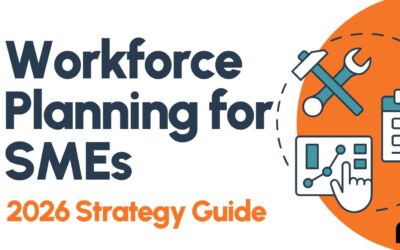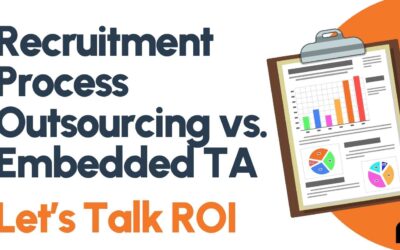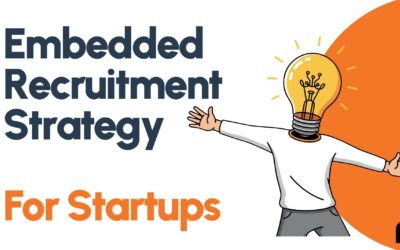Recruitment is changing fast, and the next 20 years are going to bring even bigger transformations. Aging populations, smaller talent pools, and new AI tools are all reshaping how companies find and hire people. It’s not just about making the process more efficient; it’s about rethinking how we evaluate, attract, and keep the best talent in a competitive world.
The future of recruitment will require companies to adapt their strategies to balance the aging workforce and the shrinking number of new workers.
But how do we find the right candidates when there are fewer people to choose from? One solution could be using AI, but not in the way we are using it now.
Aging Populations and Recruitment Challenges

One of the major shifts shaping the future of recruitment is the reality of aging populations across many developed nations. As baby boomers exit the workforce, companies are left grappling with a shrinking pool of younger candidates to fill their roles. This demographic change places a dual pressure on recruitment efforts: not only is the pool of available talent becoming smaller, but organisations are also finding themselves in need of innovative strategies to attract and retain seasoned workers who bring valuable experience. To meet this challenge, companies are increasingly turning to AI-powered tools to identify “hidden gems” among non-traditional candidates and streamline processes that appeal to both younger digital natives and older, experienced professionals. The goal is to create a balanced workforce that taps into the strengths of multiple generations, ensuring that critical knowledge and skills remain in the organisation while also welcoming fresh perspectives. This means that future recruitment strategies will need to prioritise diversity in age and skillset, focusing on how AI can support a multi-generational workforce in adapting to new ways of working and continuous learning.
💡Pro Tip:
Consider creating flexible roles or mentorship programs that encourage seasoned employees to stay longer while sharing their expertise with younger team members.
💡Action Point:
Audit your current workforce demographics and skill gaps. Identify roles where experience is crucial and build a recruitment plan that attracts and retains experienced talent alongside new hires.
AI in Future Recruitment: Levelling the Playing Field or Raising New Challenges?

As AI becomes more common, more job seekers are using it to write resumes and cover letters. In fact, surveys show that around 30% of job seekers use AI tools like ChatGPT to help with their applications. This makes things more equal, but it also lowers the bar. If everyone is using AI to make their applications look perfect, how can recruiters tell who is truly talented and who just used a smart AI tool?
This is a tricky problem for employers. AI is making it harder to evaluate people based on the usual markers like cover letters and resumes, which can all end up looking pretty similar. As a result, recruiters are moving beyond the traditional resume and looking for other ways to assess candidates.
Companies like Unilever use gamified AI-driven assessments through platforms like Pymetrics, which evaluate candidates on various soft skills through short games that measure problem-solving, adaptability, and social intelligence. This unbiased, skills-based evaluation enables companies to reach a broader talent pool and reduce unconscious bias in hiring.
💡Consider This:
Leverage gamified AI assessments to create a fair and standardised hiring process, ensuring that skills are evaluated without reliance on traditional resumes, which may unintentionally favor certain groups. Use platforms like Pymetrics or HireVue to standardise skill assessments across diverse candidate backgrounds.
💡Action Point:
Conduct a pilot with AI-driven gamified assessments for entry-level positions. Review the outcomes to refine the process before expanding it to more roles, ensuring AI tools align with fair and inclusive hiring practices.
Skills-Based Hiring: The Shift in Future Recruitment from Credentials to Competencies

.The future of recruitment is based on skills. Instead of relying only on resumes that might not accurately show what someone can do, companies are now using practical skills assessments and problem-solving challenges. This lets employers see how candidates think and tackle real-world situations something that tells them more than just grades or qualifications.
One trend that’s helping with this skills-based approach is gamification. Companies are creating interactive games and simulations to give candidates a chance to show their skills in fun, hands-on ways. For example, a software engineer might show their coding skills through a live problem-solving challenge, or a project manager could demonstrate their ability to prioritise tasks through a simulation game.
As the talent pool continues to shrink because of demographic changes and more AI-generated applications, gamification and skills assessments are going to become more important. These tools help recruiters assess a wider range of candidates, even those who might not have traditional qualifications. They also help recruiters sift through AI-generated resumes to find people who actually have the creativity and problem-solving skills needed to succeed.
These types of assessments give employers a better idea of a candidate’s potential not just what they’ve achieved in the past. It’s a big step towards looking at qualities like adaptability, creativity, and problem-solving, which are crucial in a world that’s changing fast.
Employers are also increasingly focusing on how the future of recruitment can benefit from AI’s capability to personalise and streamline the candidate experience, making the hiring process more engaging.
AI is also being used to find “hidden gems” – candidates who might not meet all the traditional job requirements but have the potential to do great work. AI can look for qualities like adaptability and emotional intelligence, which are often more important for long-term success than just technical skills.
💡Pro Tip:
Embrace gamified skills assessments to evaluate potential and adaptability, especially in roles where soft skills like critical thinking and creativity are essential. Companies can use interactive simulations and role-specific games to assess candidates on real-world scenarios rather than relying on formal qualifications alone.
💡Action Point:
Identify critical skills for key roles, then design assessments that target those specific abilities. This will give you a clearer picture of a candidate’s real-world potential. Begin incorporating one or two simple skills-based assessments in your interview process, such as a problem-solving task relevant to the role.
Adapting to an AI-Powered Future of Recruitment

For candidates, the rise of AI means they have to do more than just submit a polished resume. Showing their skills in a live, interactive way is becoming more important. Problem-solving assessments are a response to this shift—recruiters want to see how someone thinks in real-time, not just what they’ve done in the past.
On the employer side, it’s time to use AI not just to save time, but to make better decisions. AI tools can help analyse interview responses, watch body language in video interviews, and even track small expressions to see if someone is really engaged. This pushes us into a future where human intuition is supported by data-driven insights.
💡Consider This:
Regularly review how AI is used in recruitment. What metrics does it prioritise? Make sure it aligns with your core values and doesn’t unintentionally filter out diverse candidates.
💡Action Point:
Develop an “AI-readiness” plan that includes evaluating current tools and identifying where AI could streamline processes. Involve team members early to ensure buy-in and familiarity.
A Long-Term Forecast for Future Recruitment: The Human-AI Partnership in Hiring
Looking ahead, recruitment will be less about who has the best-looking resume and more about how well someone can handle real challenges. The move to skills-based hiring, along with AI enhancements, means the future will focus more on a complete evaluation of candidates. Hiring will become a partnership between AI and human recruiters—AI will handle the analysis, but people will still make the final decisions based on their judgment.
In the coming years, recruitment will require both employers and candidates to adapt—candidates will need to prove themselves beyond polished applications, and employers will need to create hiring processes that focus on problem-solving and adaptability. It’s a future where AI helps, but doesn’t replace, human judgment in finding the right person for the right job.
For more information on how partnering with our team can help drive your companies growth, contact our team today for a friendly chat.
With award-winning recruitment outsourcing, Rent a Recruiter delivers global Talent Acquisition services across IT, Engineering, Manufacturing, Construction, Finance, and Healthcare. We provide embedded solutions to meet your talent needs as your business scales up.


